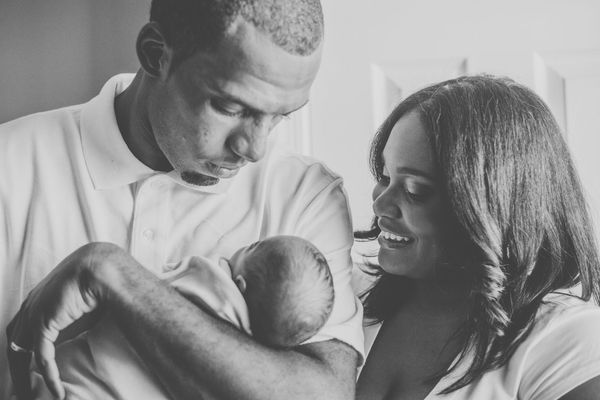Pregnancy changes the body, and the fluctuation of hormones can cause stress or anxiety for any woman throughout her pregnancy. Feeling blue is entirely normal, and it isn't uncommon for these blues to become perinatal depression.
Many women suffer from the so-called "baby blues" during or after pregnancy. They can feel sad, confused and anxious and may experience insomnia or mood swings. If these feelings come and go without remaining for a significant time, then there is probably no need to worry or seek treatment. However, feeling this way or worse for at least two weeks can be a sign of depression.
Perinatal, or pregnancy-related, depression occurs in 10 percent to 20 percent of expecting mothers. Given that 25 percent of women are likely to suffer from depression at some time in their lives, the existence of perinatal depression is hardly surprising. But why does it happen?
Like almost any form of depression or anxiety, perinatal depression is a chemical imbalance in the brain. During pregnancy, your body's hormones can fluctuate wildly, potentially putting your gray matter under a black cloud. Such depression can also be caused or exacerbated by environmental factors such as high stress, rocky relationships or lack of rest or they can be genetic, related to a family history of depression. But how do you know if you have it?
Feeling sad, anxious, guilty, hopeless, confused, apathetic or suicidal for two or more weeks in a row may indicate that you have more than the baby blues. Likewise, if you have difficulty sleeping, sleep too much, lose your appetite, feel sluggish or cannot concentrate, you may need to consult your health care provider.
Treatment is important. Depression may lead you to take poorer care of yourself or even consider self-harm and may interfere with your ability to care for your child.
If you suspect that you are depressed, consider contacting a mental health professional. Sometimes perinatal depression can be resolved with just a few illuminating or comforting conversations between you and a supportive person. In more extreme cases, a mental health provider may prescribe one of several antidepressants that are considered safe for expecting or breast-feeding mothers.
A health care professional may prescribe something as simple as light therapy. Seasonal affective disorder (SAD), a form of depression caused by lack of sunlight exposure during the winter, can cause perinatal depression. Light therapy involves exposure to special light frequencies, which, with luck, may brighten you up if you have a chronic case of the blues.
- Why Aren't Women Speaking Up About Postpartum Depression? ›
- New Moms Are Busy Checking on Their Babies. But Is Anyone Checking on Them? ›
- Recognizing Postpartum Depression ›
- Is It Baby Blues or Postpartum Depression? ›
- Drowning in New Motherhood: My Journey Through Postpartum Depression and Anxiety ›
- 6 Weeks Pregnant: Emotional Ups and Downs ›
- Positive Thinking Did Not Heal My Postpartum Anxiety - HealthyWomen ›







